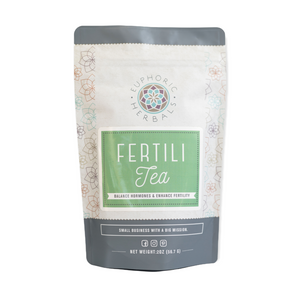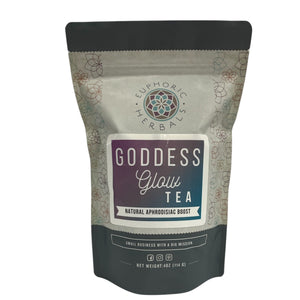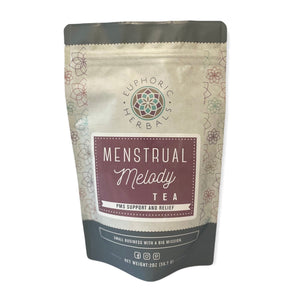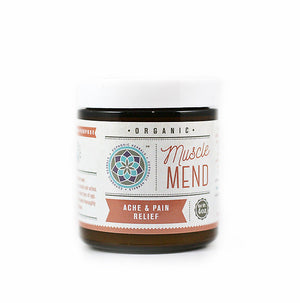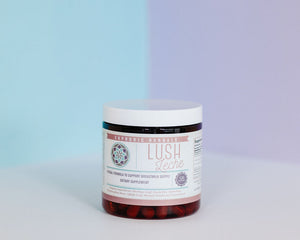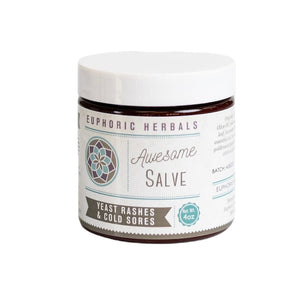Fall and winter are typically the time of year when you might start thinking about how to boost your immune system.
The holiday season can bring fun times and family togetherness, but it also brings coughing, sneezing, sore throats, and fevers.
While nothing can make you completely invincible to the bacteria and viruses that get passed around, herbs can be a powerful ally for strengthening your immune system.
Some immune-boosters are common herbs and spices that you may already have in your home. Others can be bought and stored to have on hand for the cold and flu season.
Here's more about which are the best herbs to use.
How to Boost Your Immune System With Herbs
When it comes to herbs for immune health, there are a few different types.
Some herbs are most beneficial when used to prevent an illness or infection from occurring.
Typically called immunomodulators or immune tonics, these herbs should be used regularly for immune health. They balance and strengthen rather than stimulate the immune system. (1)
Other herbs are most beneficial when used at the first signs of sickness or to shorten and lessen symptoms during sickness.
These are known as immunostimulants or immune stimulants because they stimulate white blood cell activity to fight infection. (1)
Antimicrobial herbs are a third type that have specific action against bacteria, viruses, fungi, etc.
It's important to note that some herbs will fall into more than one category and are often more effective when used in combination with one another.
You can try any of the herbs listed below to boost your immune system or get the benefits of several in this immune boosting Immuni Tea.
Elderberry

Elderberries are becoming a popular remedy for immune health.
Recipes for elderberry syrup start floating around the Internet in early fall, and many herbalists have their own favorite recipe.
There is good reason for its popularity during the winter months. Elderberry acts as both an immune stimulant and an immune tonic. (2)
It is safe enough to take elderberry daily as a syrup or a tincture to prevent colds and flus. It can also be taken during an illness to lessen the duration and severity of a cold or flu.
Studies confirm elderberry's traditional use and show that it not only stimulates and strengthens the immune system, it also has antibacterial and antiviral properties with specific action against strains of the flu. (3)(4)
Echinacea
Echinacea has long been used in herbal medicine to boost the immune system.
It acts as an immune stimulant, can raise the body's natural resistance to infection, and has antiviral, antifungal, and antibacterial properties. (Gladstar. Medicinal Herbs: A Beginner's Guide, pg. 131)
Echinacea is often recommended to be taken at the first signs of illness to stimulate the immune system.
However, there are also some studies showing that it can shorten the duration of cold or flu symptoms. (5)
Astragalus
Astragalus is a powerful herb used often in traditional Chinese Medicine but less familiar to those in the western world.
It's considered one of the best tonic immune herbs and also has adaptogenic properties.
When it comes to how to boost your immune system, astragalus is best taken daily during fall and winter. It works to strengthen the immune system gradually with full effects being reached after a few weeks. (2)(6)
Astragalus root is considered a food and can be added into broth and other recipes or taken as a tea.
Lemon Balm
Lemon balm is a very benevolent yet powerful herb with many health benefits.
While it can help to boost and stimulate your immune system, it is especially valued for its strong antiviral properties. (1)(7)
Lemon balm also anti-depressive properties and can help with seasonal affective disorder, which makes it very beneficial for daily use during the fall and winter months.
Garlic
Although you more likely think of garlic for cooking than as a medicinal herb, it is powerful for your immune system.
Garlic is an immune stimulant, an immune tonic, and has strong antimicrobial properties. (2)
It stimulates the production of white blood cells to fight infection and has been shown to combat bacteria (including some that are drug resistant), protozoa, fungi, and viruses. (8)
Raw garlic has the most benefit for your immune system, but it can still be effective when cooked. Or you can try it in a fire cider recipe for a potent immune boost.
Ginger

Ginger is a spicy root with documented anti-inflammatory and antimicrobial properties. (9)
It can be helpful for getting over a cold or the flu and provides a welcome warming and decongesting effect.
To get the most out of ginger, make a tea by grating or dicing the fresh root and simmering it in water for 10-15 minutes. Strain it out and add honey and lemon for a powerful and effective tea.
Turmeric
Turmeric is actually a close cousin to ginger. This orange spice comes from the root of the turmeric plant and can be used fresh or dried and powdered.
Turmeric has soared to popularity for its anti-inflammatory properties, but it's also an immune system booster and an antimicrobial.
Like other immune stimulants, turmeric can boost white blood cell production and help the immune system to function better.
Other Ways to Boost Your Immune System Naturally
Herbs can be a great way to boost your immune system, but there are also many lifestyle factors involved.
Stress (especially chronic stress) has been shown to have a negative effective on the immune system. (10) Learning stress management techniques and finding ways to daily lower stressful feelings will naturally boost your immune system.
Sleep also plays a large role in immune system function. Not getting enough sleep on a regular basis is likely to weaken your immune system. (11)
Nutrition always plays a large role in overall health, including immunity. It's especially important to get a good amount of vitamins C and D to keep your immune system strong.
Sunlight is the best source of vitamin D, but it can be supplemented during the winter. Many fruits and vegetables provide a good source of vitamin C as do herbs like rosehips and hibiscus.
Precautions
In general, many of the herbs that can boost your immune system are very safe even when taken in large amounts.
You should always consult your doctor or a qualified health professional before starting an herbal regimen if you have a medical condition or are pregnant.
Immune stimulating herbs are often recommended to be taken for a short period of time so that they don't cause an imbalance. Though not typical, immunostimulants can cause a flareup for someone with an autoimmune disease.
Keep Your Immune System Strong
Get ready for cold and flu season by using some of these herbs to boost your immune system.
You can use herbs you might already have on hand (like ginger and garlic). Or try using several at once in an immune-boosting herbal tea blend.
Herbs, along with good nutrition and sleep, can help you to enjoy the holiday season (and the rest of the year) instead of spending it sick and tired.
Disclaimer: This post is for informational purposes only. It does not constitute medical advice and should not be substituted for medical advice. Please consult your health care provider, herbalist, midwife, or naturopathic physician before taking herbs, supplements, etc. Here's the link to our full disclaimer.






















































